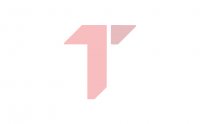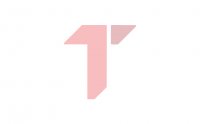The first thing Ban Ki-moon asked me was: "Have you seen the match between Đoković and Murray yesterday"? The story about Dejan Bojanić, a young Serb from the Forbes' list
One of the 30 most influential young Europeans who is on the Forbes' list along with the best tennis player in the world Novak Đoković, is a young Serb from the town of Bela Crkva, Dejan Bojanić (25).
LIKE US ON FACEBOOK - Telegraf English, or write to us on: office@telegraf.rs
From the interview he had with our news agency you will see why he is not a regular student of the final year at the Faculty of Economics in Belgrade, but a very successful, ambitious, and diligent young man who really deserved to be on this prestigious list of 30 most influential young people in Europe.
T: Dejan, how does your day look like?
- I live in Stockholm where I work for the humanitarian organization “Save the Children”. My area is international relations of the organization and I am also the coordinator of the network of children and young people in all Nordic countries. Besides, I volunteer a lot and I work part-time during weekends in different programs connected with the creation of youth politics. On Wednesdays i play tennis, "a little" worse than my "colleague" from the Forbes' list (laughs). I have a privilege that I can often travel due to the work, so I use the weekends to explore Europe and the world.

T: How do you feel now since you are together on the list with the most popular tennis player in the world, Novak Đoković, and that you both share the same reference - "Serbia"?
- I do not know him personally, but to be the best in the world in any category means a lot of hard work, renunciation, hard decisions, and dedication. Novak is No. 1 in tennis, a sport which calls for both mental and physical fitness. I can just admire a guy like that and to have a lot of respect. I am honored that Forbes made a parallel between my work and his.
T: Why do you think the journalists from the Forbes magazine chose you to be on the list?
- I think they recognized how dedicated I am when I work what I like. Also, I think they appreciated the fact that I was chosen by the 99 organizations as a member of the board of directors which represents hundreds of thousands of young people. This means when I have to negotiate with politicians, I carry the burden of many people who I represent and work with.

At the same time, despite working 8 hours in “Save the Children” organization I volunteer in the CEO board of the European Youth Forum and I spend my weekends working as the part of the campaign of the UN secretary general, Ban-Ki-moon. As a result of that, I am constantly in contact with many young people and the Forbes magazine appreciates that kind of devotion.
T: You cooperated last year with the winner of the Peace Nobel prize, Malala Yousafzai. What impression did she leave on you?
- Malala is a very wise girl and pleasant to communicate with. At the beginning I was working with her parents a lot because I was in the organizational team of the UN session where she spoke for the first time after the attempted assassination. Vuk Jeremić was then the president of the General Assembly and he gave the permission to my team to change one of the plenary sessions into "youth center" where Malala was supposed to deliver a speech.

After that, I continued working with her and her team on the activities whose goal was to promote the quality of education. Many stories ended with blaming the Taliban movement; we wanted, for a change, to focus the media attention on the education problem, which is either lack of such or bad quality. Our fight gave results and Malala deserved the Nobel Peace prize for her work. She is our hero who has helped a lot that the education gets a better mark, and the voice of children a greater strength.
T: You are a close associate of Ban-Ki-moon. How does he comment on the fact that you are from Serbia (Since Vuk Jeremić was the president of the UN General Assembly)?
- I met Ban-Ki-moon personally on a private dinner, at the top of the UN building, in July 2013. It was a really crucial moment for me because I had the chance to talk with him about many education problems - the right to educate, the quality of the education, better teacher support, free education on all levels, etc. Instead of that, the first thing he said to me was "You are from Serbia! Have you seen the match between Đoković and Murray yesterday!?" We spent the rest of the lunch talking about subjects ranging from difficult education conditions for the marginalized youth groups, to the topic of checking the IDs when wine is being served to the young people in the UN.

T: How did you come to the UN?
- In 2012 Secretary general of the UN Ban-Ki-moon started a campaign to promote the quality education. To make it a successful campaign, 15 young experts were chosen as a team to be there with the Secretary general and his education assistant, former Prime minister of Great Britain, Gordon Brown. I was chosen into that group because of my experience with working with institutions of the Council of Europe, EU, and several governments. Since then, my experience in working with the UN started expanding. I started cooperating closely with the agencies and programs of the UN like UNESCO and UNICEF and also I took part in General assemblies of the UN where I supported several nation-members.

T: Young people from our country often think that they cannot reach their full potential here. What is you r advice for them?
- I think that we have to change the value system and society norms if we want use our full potential. I am positive that there are many people in Serbia who think straight, the opposite side is just louder. That kind of behavior which insults other people due to religion, race, or nationality is unacceptable, and we should stand up and react when we witness injustice. Moreover, I strongly believe that young people think that their beliefs are "insignificant" "not big enough", or "unfeasible". This is the case just because of our society structures who think of young people as of lower value. Every token of appreciation, nice relationship with the people around you and the environment, your neighborhood, or a school yard is important.
T: You are working in education field. Where do we go wrong and can you make a comparison between us and the Swedish system, for example?
- Education in Sweden is free. It is free on all levels; you do not need a single coin to study at the university. Professors have good wages because they are respected - they are the ones who spread the knowledge and reap the future benefits. Young people in Sweden are taught to think critically, There are many subjects with the simple goal to teach young people to question the world around them, not to accept it bluntly. They are taught to be different. They do not just take the information, but also the way how to reach them.

Problem in Serbia is that education is not the priority. Education system is the most important part of the public work, and that is not reflected in the state's budget. I know that I will get negative comments if I make this interview political,
but it has to be clear that any change in education will not happen in the course of 4 years. Until we grasp this fact, people will expect the unexpected - fast changes. With expectations like that, no one will dare to risk and make a decision to improve the education quality.
T: How do you cope with girls, now that you are one of the most influential Europeans?
- Communication skills used in political negotiation are really useful when dating, so I do not think that would be a problem (laughs).
T: Is a good plan crucial for the man's career and life development?
- I spend a lot of time planning, and in my opinion this is very important for the personal and career growth in one's life . On the other hand, I think that it is important to improve the capability of working under stress and in sudden situations. In my case, the skill of making the decision is extremely important in career success, and that is something that needs to be practiced. My parents used to ask my opinion and made me reach my own decisions. This way of doing things is crucial for personal and career growth.
T: Let us talk about the plans for the future. Do you plan to come back to Serbia in the near future and to help further development of the country?

- In the future, I would like to be in a position where my experience could be well used and where I could at the same time gather new knowledge and continue learning. I would like it to be in an institution, international agency or in an influential NGO dealing with social growth and human rights. Because I am the citizen of the world, I will continue searching for a place like that. If something like that happens in Serbia, I will gladly take up the opportunity.
Video: Zafranović: David je ostavio veliki trag u srpskoj kinematografiji
Telegraf.rs zadržava sva prava nad sadržajem. Za preuzimanje sadržaja pogledajte uputstva na stranici Uslovi korišćenja.

